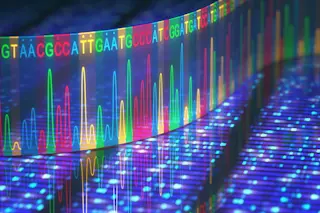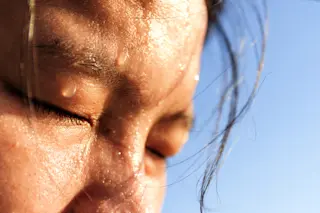When it comes to evolution in humans, there are two main things making it happen, at least on the genetic level: The recombination of genes that happens when our parents’ chromosomes pair up and the random mutations that inevitably result.
A new high-resolution map of the human genome is providing scientists with their most detailed look yet at the dual roles those processes play in creating each person’s unique genome. It’s also revealing that mutations in some places are more likely than others, indicating, the researchers say, that they might not be as random as we think.
“The classic premise of evolution is that it is powered first by random genetic change,” Kari Stefansson, a neurologist at deCODE Genetics, a genomics research company based in Reykjavik, Iceland and a subsidiary of U.S.-based Amgen, who led the new research, said in a statement. “What we see here is that the genome ...














